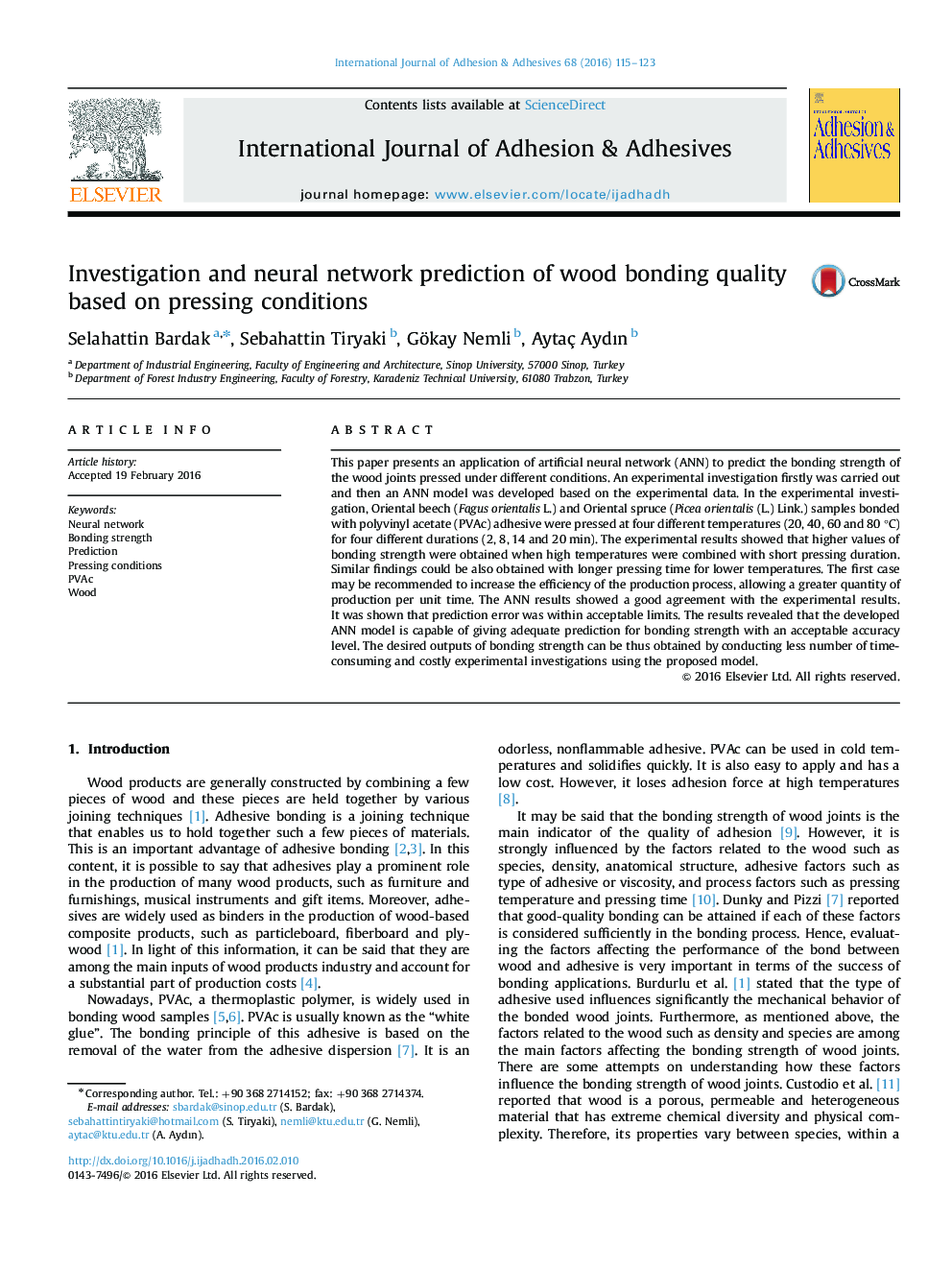| Article ID | Journal | Published Year | Pages | File Type |
|---|---|---|---|---|
| 7171063 | International Journal of Adhesion and Adhesives | 2016 | 9 Pages |
Abstract
This paper presents an application of artificial neural network (ANN) to predict the bonding strength of the wood joints pressed under different conditions. An experimental investigation firstly was carried out and then an ANN model was developed based on the experimental data. In the experimental investigation, Oriental beech (Fagus orientalis L.) and Oriental spruce (Picea orientalis (L.) Link.) samples bonded with polyvinyl acetate (PVAc) adhesive were pressed at four different temperatures (20, 40, 60 and 80 °C) for four different durations (2, 8, 14 and 20 min). The experimental results showed that higher values of bonding strength were obtained when high temperatures were combined with short pressing duration. Similar findings could be also obtained with longer pressing time for lower temperatures. The first case may be recommended to increase the efficiency of the production process, allowing a greater quantity of production per unit time. The ANN results showed a good agreement with the experimental results. It was shown that prediction error was within acceptable limits. The results revealed that the developed ANN model is capable of giving adequate prediction for bonding strength with an acceptable accuracy level. The desired outputs of bonding strength can be thus obtained by conducting less number of time-consuming and costly experimental investigations using the proposed model.
Related Topics
Physical Sciences and Engineering
Engineering
Mechanical Engineering
Authors
Selahattin Bardak, Sebahattin Tiryaki, Gökay Nemli, Aytaç Aydın,
